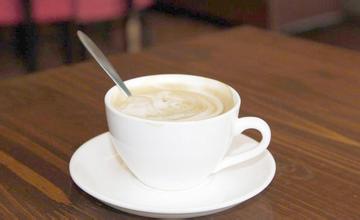Taste and Flavor characteristics of Jamaica Blue Mountain Coffee
80% of Jamaica is covered by mountains, with steep mountains and coffee trees almost entirely on rugged slopes. Therefore, the process of picking coffee beans during the harvest period is very difficult, and non-local skilled female workers are simply not competent. When picking, we should choose the right mature coffee beans, immature or ripe coffee beans will affect the quality of coffee. The picked coffee beans are shelled on the same day, and then let them ferment for 18 hours. After that, the coffee beans were cleaned and screened. The subsequent process is to dry, which must be carried out on the cement floor or on a thick blanket until the humidity of the coffee beans drops to 12% 14%. And then store it in a special warehouse. Take it out and roast when needed, then grind it into powder. These procedures must be strictly mastered, otherwise, the quality of coffee will be affected.
For the very precious Blue Mountain Coffee, the packing and transportation mode adopted by the Jamaican government is also different. Unlike other coffees, Blue Mountain Coffee is not packed and transported in cloth bags at 60kg / bag, but in wooden barrels at the standard of 70kg / barrel. What is even more special is that each barrel is accompanied by a certificate issued and sealed by the Jamaican government to prove its pure pedigree, which is unique in the whole coffee industry.
Not all coffee produced in the Blue Mountains of Jamaica is labeled "Blue Mountain Coffee". There are two grades of coffee here: "Alpine Coffee" and "Blue Mountain Coffee". Only those grown in the Blue Mountains above 609 meters above sea level are authorized to use the logo "Jamaican Blue Mountain Coffee". Blue Mountain Coffee can maintain today's top status, but also closely related to the local business policy. In 1932, Jamaica adopted a policy to encourage coffee production to reduce the island's dependence on sugar exports. Unlike most coffee-producing countries, the local government does not plant a large number of high-quality and poor-quality coffee in order to increase output, but to give priority to quality, preferring to sacrifice the output of coffee to ensure the quality of Blue Mountain coffee. Therefore, Jamaica is currently one of the countries with low coffee production in the world. Brazil, the world's largest coffee exporter, produces 30 million bags of coffee a year, while Blue Mountain produces only about 40, 000 bags a year.

Important Notice :
前街咖啡 FrontStreet Coffee has moved to new addredd:
FrontStreet Coffee Address: 315,Donghua East Road,GuangZhou
Tel:020 38364473
- Prev

Introduction of Bolivian Coffee producing areas with unique planting Environment
The overall taste of Bolivian coffee is rich and balanced, the aroma is rich and unique, similar to the mixture of flower and fruit aroma, impressive. The perennial low temperature environment makes the coffee fruit grow slowly, compact enough, the aroma is also charming, the floral aroma is obviously medium and low acidity, but the feeling is not monotonous, on the contrary, it appears soft and fresh, with the sour taste of citrus fruit. Because of Bolivie
- Next

Puerto Rico coffee producing area with pure flavor, aroma and heavy particles
Some older varieties of Arabica coffee beans are grown, although they yield less than others, but are generally of good quality. The people here have been adopting an ecologically conservative, intensive farming method, using only low-toxicity fertilizers and chemicals, and adopting mixed crop cultivation measures to make the soil more fertile. When it's time to pick coffee beans, people walk back and forth between coffee trees.
Related
- Does Rose Summer choose Blue, Green or Red? Detailed explanation of Rose Summer Coffee plots and Classification in Panamanian Jade Manor
- What is the difference between the origin, producing area, processing plant, cooperative and manor of coffee beans?
- How fine does the espresso powder fit? how to grind the espresso?
- Sca coffee roasting degree color card coffee roasting degree 8 roasting color values what do you mean?
- The practice of lattes: how to make lattes at home
- Introduction to Indonesian Fine Coffee beans-- Java Coffee producing area of Indonesian Arabica Coffee
- How much will the flavor of light and medium roasted rose summer be expressed? What baking level is rose summer suitable for?
- Introduction to the characteristics of washing, sun-drying or wet-planing coffee commonly used in Mantenin, Indonesia
- Price characteristics of Arabica Coffee Bean Starbucks introduction to Manning Coffee Bean Taste producing area Variety Manor
- What is the authentic Yega flavor? What are the flavor characteristics of the really excellent Yejasuffi coffee beans?

